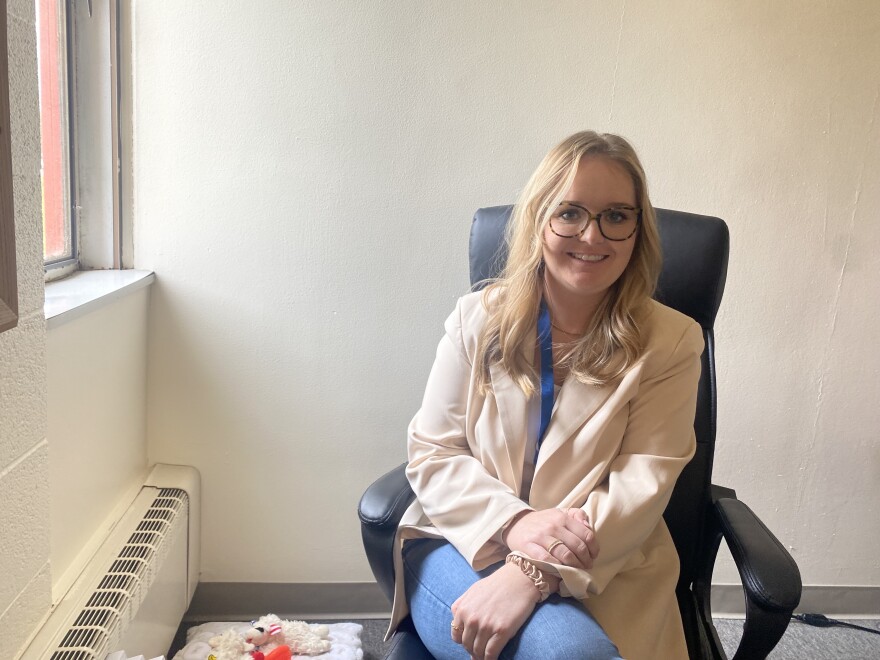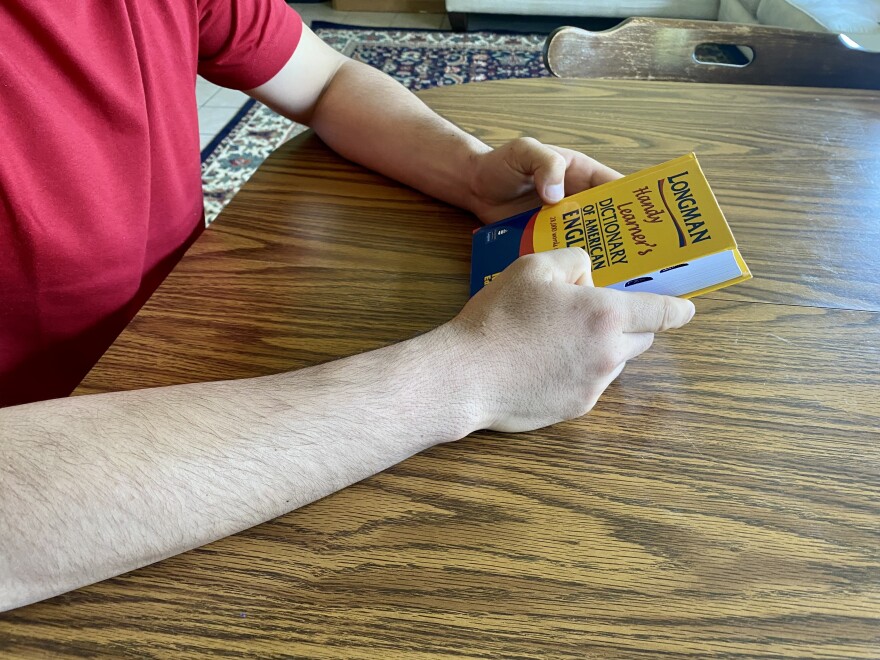The walls of Mohammad Akbari’s apartment show no trace of the story of the person living there.
There are no family photos, no posters, no small pencil markings of a child's increasing height on the doorframe. To an outsider, the rooms and their objects may seem ordinary. But, as the Afghan refugee opens the white cabinets in his kitchen, he points to his small but growing collection of cups, spices and silverware with pride.
They’re proof of how far he’s come.
“I’ve bought it all myself,” Akbari said. “Now, I have lots of things.”
That wasn’t the case three months ago when he first moved in. All he had to start his new life after fleeing Afghanistan was a couple of plastic utensils and an air mattress.
Sioux City refugee organizations have resettled about 50 Afghan refugees into the community since their arrival in August, after their country fell to the Taliban. But, an even larger group of refugees has moved to western Iowa to work for Tyson Fresh Meats at the Dakota City plant just across the border in Nebraska. For many, that means living hours away from their caseworkers and the resources they need to start anew.

Akbari is among those refugees. He was originally resettled to Lutheran Family Services in the Omaha area. When he asked his caseworker where he could find work, he was told about a company an hour and a half away.
“The only option they offered me was Tyson,” he said. “I told him that I'm gonna go with that.”
Without even knowing it was a meat processing plant, he moved – needing to support his family back in Afghanistan. But once he did, Akbari says it became hard to contact his caseworker. When he needed a social security number, he struggled to apply for one alone. When he wanted to go to the doctor, he didn’t know if he had insurance or how to make an appointment.
"It's so hard for me to figure all the things out by myself.”Mohammad Akbari, Afghan refugee
Assistant vice president of resettlement programs at Lutheran Family Services Matt Martin said the organization encourages refugees to stay in the area for the first 90 days to get everything settled. But, many choose to leave their caseworkers in order to begin working.
Akbari said his first months in Sioux City, he felt entirely alone.
“Without a caseworker, it’s too hard, too hard. I have this experience,” Akbari said. “Even I really regret coming here [Sioux City] and many times I thought about going back to Omaha because it's so hard for me to figure all the things out by myself.”

Finding a home
He’s just one of more than 150 Afghan refugees who were recruited to work at the Nebraska meatpacking plant. They’ve come from all over — Texas, New York, California – attracted by Tyson’s offer to hire, relocate and find housing for them.
But that promise hasn’t been easy to keep. Local resettlement agencies have struggled to find affordable housing for incoming refugees, and Tyson Foods’ experience is no different. When the refugees arrive, they are temporarily placed in hotels until an apartment opens up.
Tyson community liaison Lupe Tarelo said the company is working to ensure its new employees are placed in housing within walking distance from resources they need.
“They don't have transportation right now, so it's important to know how far our grocery store is for them. We will circle around and find a laundromat and so on and so forth.”
The majority of Afghan refugees who have arrived since January have found permanent homes. Tarelo estimates fewer than 50 are temporarily living in hotels. She said she’s hopeful it won’t be much longer until all of them are resettled.
‘I think that we'll be cleaning out the hotels here very, very soon,” Tarelo said.

Filling the gaps
The company is also partnering with Lutheran Services of Iowa to connect the new arrivals to support they need beyond housing. LSI refugee coordinator Katie Hagen goes into the plant two to three times a week to offer help with everything from work permits to health screenings.
“I feel like building the relationships that we have built has been remarkable,” Hagen said. “You may meet with one person one day, and then you'll see him bring his friend to you the next time you're out at Tyson.”
Since March, she’s been working to make sure each refugee gets the resources they’re promised. That includes roughly $1200 dollars of ‘welcome money’ from the federal government. Refugee organizations can spend this money on their clients for support like rent or groceries. Once the organization closes a case, they give the rest of the funds to their client.

But for Afghan refugees like Mirzaye, those funds aren’t transferring right away. He moved to Sioux City from the Omaha area. He’s asked us to use only his last name, out of fear for his family’s safety back in Afghanistan.
He didn’t receive his stipend before his move. And when he was given it, he was told he had to drive to Lutheran Family Services’ office in Council Bluffs to retrieve it himself. He had to pay a taxi for the three hours it took to get there and back.
Hagen said that shouldn’t have happened — a check should have been mailed to him. Martin of Lutheran Family Services said they handed the check in-person because they wanted to ensure it reached him amid his move from hotel to apartment.
But, to Mirzaye, it reinforced the distance he felt from his caseworker.
Starting life ‘from the beginning’
In his first months in Sioux City, Mirzaye said he had no one to turn to. Each day, he would pay someone to take him to work and then return back to his empty apartment. He felt isolated.
“It was so bad. I got so stressed. I was depressed, I was depressed. Sometimes I was thinking about leaving to go back to maybe go to Afghanistan,” Mirzaye said.

But, everything’s changed since he found help from the local resettlement agencies. With their help, he’s furnished his apartment with a bed. He’s applied for health insurance through Tyson. He’s beginning to meet his neighbors for dinner – many of whom also came from Afghanistan.
He’s even reached one of his biggest goals: He bought a car.
“It takes time to start a life from the beginning,” he said. “I can work, I can do it. But it takes some time.”
“It takes time to start a life from the beginning."Mirzaye, an Afghan refugee
Still, he sometimes worries about the other refugees – the ones who do not speak English. He thinks about how hard it’s been to adjust, even though he knows the language. From time to time, he’s seen them in the grocery store or at a bank, struggling to adjust to their new environment.
“You know nothing. You don't know where to go shopping, you don't know where the hospital is or anything,” Mirzaye said. “It is so hard for them to live until they get no they get familiar with the area. It is absolutely hard for them.”
He said he often stops to help them in whatever way he can because he knows the difference a little bit of help can make.





